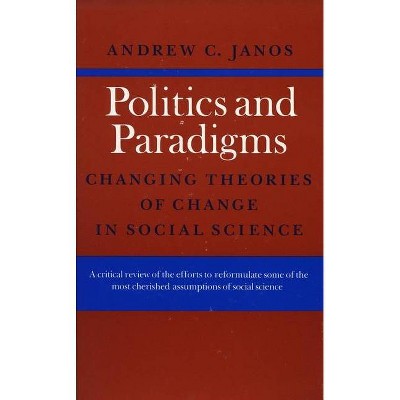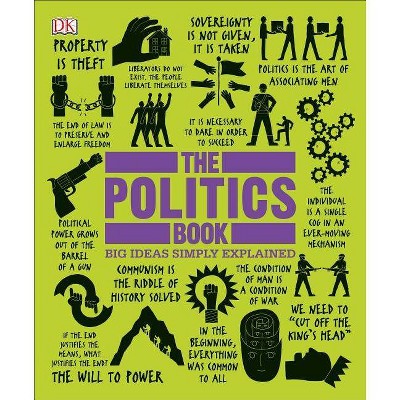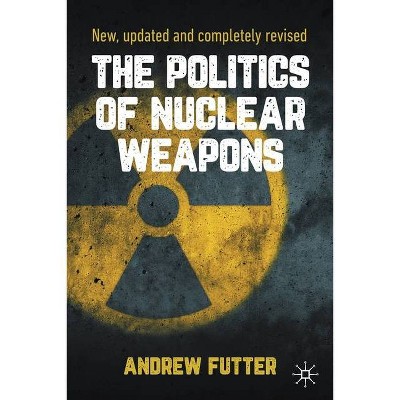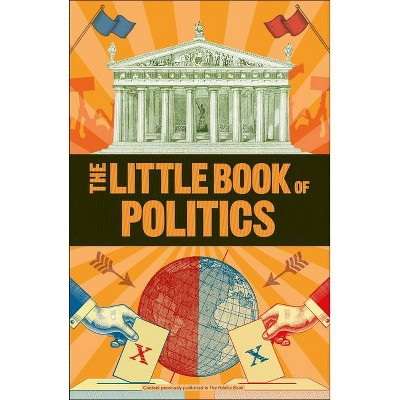Material Politics - (Rgs-Ibg Book) by Andrew Barry (Paperback)
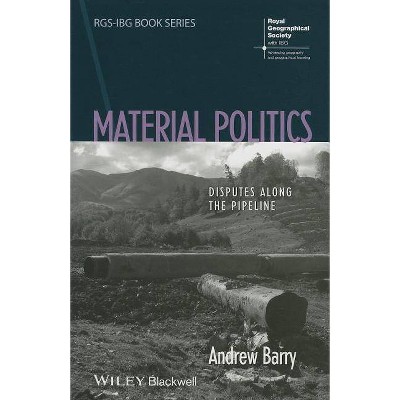
Similar Products
Products of same category from the store
AllProduct info
<p/><br></br><p><b> About the Book </b></p></br></br>"Presents an original theoretical approach to political geography by revealing the paradoxical relationship between materials and politics"--<p/><br></br><p><b> Book Synopsis </b></p></br></br><p>In <i>Material Politics</i>, author Andrew Barry reveals that as we are beginning to attend to the importance of materials in political life, materials has become increasingly bound up with the production of information about their performance, origins, and impact.</p> <ul> <li>Presents an original theoretical approach to political geography by revealing the paradoxical relationship between materials and politics</li> <li>Explores how political disputes have come to revolve not around objects in isolation, but objects that are entangled in ever growing quantities of information about their performance, origins, and impact</li> <li>Studies the example of the Baku-Tbilisi-Ceyhan oil pipeline - a fascinating experiment in transparency and corporate social responsibility - and its wide-spread negative political impact</li> <li>Capitalizes on the growing interdisciplinary interest, especially within geography and social theory, about the critical role of material artefacts in political life</li> </ul><p/><br></br><p><b> From the Back Cover </b></p></br></br><p>Geography and social theory are increasingly recognising the critical role of material artefacts in political life. No longer can we think of materials as the passive, stable and inert foundation on which disputes emerge; rather, the unpredictable and lively behaviour of material objects and environments has become integral to the conduct of politics. In <i>Material Politics</i>, Andrew Barry develops this argument further, directing us towards an intriguing paradox. For just as we are beginning to attend to the importance of materials in political life, the existence of materials has become increasingly bound up with the production of information about their performance, origins and impact. Political disputes have come to revolve not around objects in isolation, but objects that are entangled in ever growing quantities of information.</p> <p><i>Material Politics</i> traces the emergence of disputes about an object, an oil pipeline, about which an unprecedented quantity of information was made public. Following the collapse of the Soviet Union, the development of the 1760km Baku-Tbilisi-Ceyhan pipeline from the Caspian Sea to the Mediterranean was a remarkable experiment in transparency and corporate social responsibility. Yet far from reducing the level of controversy surrounding the pipeline's construction, the transparency of the project engendered a proliferation of apparently minor disputes about issues ranging from public consultation procedures and the location of beehives and walnut trees to the putative connection between the construction of the pipeline and bombsites, landslides and damage to houses. The politics of the pipeline turns out to be not just a story of oil companies, nation states and activists; it also encompasses consultants' and engineers' reports, archaeological sites, documentary films, steel and chemicals, cracks and corrosion, and mundane objects - trees, lorries and houses. Materials, we might say, lie at the heart of the eruption of situations that both animate and transform political life.</p><p/><br></br><p><b> Review Quotes </b></p></br></br><br><p>"[Barry's] methods of inquiry, attention to detail, and brilliant accounts of the roles materials played in knowledge controversies are standout contributions to the field and challenge several of the assumptions of now-common disciplinary gestures to new materialisms." (<i>Environment and Planning D: Society and Space</i>, 1 October 2014)</p> <p>"Despite the presence of some very prominent and overcoded political actors in this project, such as global oil companies, NGOs, activists and national governments, Barry's meticulous attention to seemingly minor elements and complex relations displaces any recourse to easy reductionism. The usual suspects become part of a multitude of participants entangled in the project's controversies, and their overt political capacities are often displaced or disabled by the performance of the most mundane things. In this analysis systemic patterns of causation are difficult to identify. Barry maps relational complexity with incredible skill, and the result is a sophisticated account of the contingencies of politics." (<i>Contemporary Political Theory</i>, 18 November 2014)</p> <p>"Andrew Barry's genius as a writer is that he teaches you something new about something that you thought you already knew." (<i>Science & Technology Studies</i>, 1 November 2014)</p><br><p/><br></br><p><b> About the Author </b></p></br></br><p><b>Andrew Barry</b> is Professor of Human Geography at University College London.</p>
Price History
Price Archive shows prices from various stores, lets you see history and find the cheapest. There is no actual sale on the website. For all support, inquiry and suggestion messagescommunication@pricearchive.us





